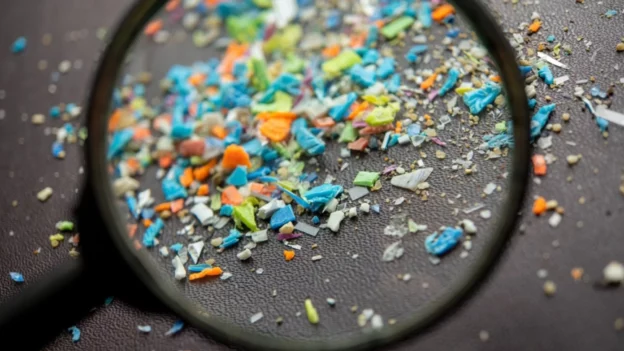Researchers at the University of California, San Diego have developed a type of thermoplastic polyurethane (TPU) that includes bacterial spores of Bacillus subtilis, capable of biological decomposition. Jon Pokorski, professor at the Jacobs School of Engineering and co-director of the Materials Research Center, highlights that they chose the Bacillus strain most efficient at using TPU as its main carbon source.
Biodegradable TPU driven by bacterial spores
On the other hand, the choice of bacterial spores instead of mushrooms lies in its robustness, since They have a protein shield that makes them durable in extreme conditions. The scientists combined these spores with TPU granules and processed them in a plastic extruder at a temperature of 135 degrees Celsius, resulting in plastic strips.
Furthermore, to check the biodegradability of the new material, the strips were exposed to active and sterile compost environments, maintaining controlled temperature and humidity conditions . The germination of the spores was stimulated by the humidity and nutrients of the compost, achieving a degradation of 90% in five months.
Pokorski emphasizes that the technology allows decomposition without the need for external microbes, which is crucial given that many plastics do not reach microbe-rich environments. The team is still investigating what residue remains after complete degradation, but they anticipate that the remaining spores would be harmless , given that Bacillus subtilis is commonly used in probiotics.
Heat resistant and environmentally friendly
Using laboratory adaptive evolution techniques, the researchers developed strains capable of withstanding the high temperatures required for the TPU manufacturing process. Adam Feist, co-author of the study, describes how the spores not only survive the heat, but also reinforce the structure of the plastic, improving its mechanical properties significantly.
The development of biodegradable plastics such as “living” TPU not only represents an advance in waste management, but also opens new possibilities in the production of ecological materials and self-degradation. This approach could eventually reduce dependence on traditional synthetic polymers, encouraging a transition towards a more sustainable circular economy.
Follow us on social networks and don’t miss any of our publications!
Inspenet.com YouTube LinkedIn Facebook Instagram X
Source: today.ucsd.edu
Photo: Shutterstock


